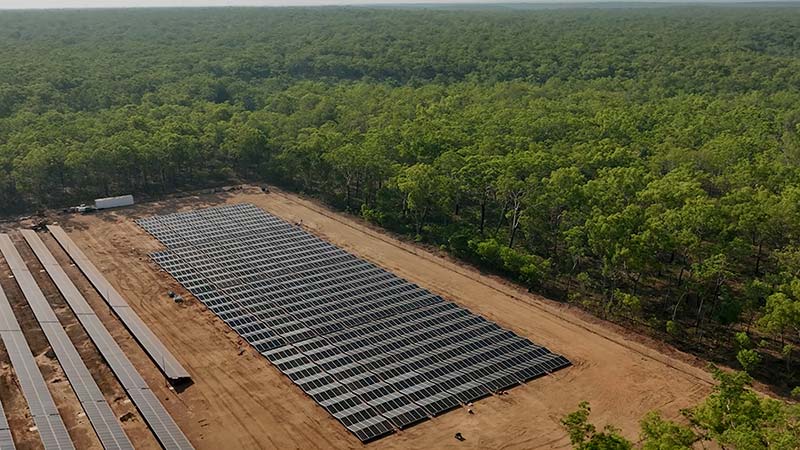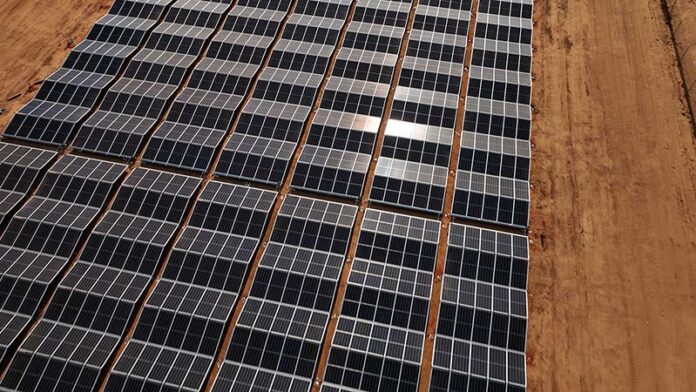In an era where the quest for sustainable energy solutions has become imperative, solar energy shines as a beacon of hope and economic opportunity. The global energy landscape is at a pivotal juncture, with the urgent need to transition from fossil fuels to renewable sources.
Solar power, with its promise of endless energy courtesy of the sun, emerges not just as an environmentally sustainable choice but also as a savvy economic investment. Beth Howell, an advocate for renewable energy, encapsulates this sentiment perfectly, stating, “Utilising the sun’s energy is completely free.
It’s already there, and isn’t going away for millions of years, so why not make the most of it?” This introduction sets the stage for a deeper exploration into the myriad economic benefits that solar energy brings to the table, hinting at the savings, earnings, and value enhancements that await those who dare to invest in this radiant future.
Decoding the Economic Benefits of Solar Energy
The allure of solar energy as an economic boon primarily lies in its ability to significantly reduce electricity bills. The sun, after all, does not send a monthly invoice. The initial investment in solar panels is quickly offset by the savings accrued over time, as these panels diligently convert sunlight into electricity, slashing utility bills.
Beyond the immediate relief on monthly expenses, solar energy opens up avenues for potential earnings through mechanisms like net metering, where excess power generated can be sold back to the grid, providing an additional income stream while contributing to the community’s energy needs.
Moreover, the decision to invest in solar panels invariably leads to an increase in property values. Homes and commercial buildings equipped with solar energy systems are perceived as more desirable, commanding higher prices in the real estate market.
This tangible increase in property value, coupled with the long-term savings on energy costs, underscores the economic wisdom of embracing solar power. The transition to solar energy, therefore, is not just a step towards sustainability but a strategic financial investment that promises substantial returns.
Technological Innovations Driving Solar Investments
The economic appeal of solar energy is further amplified by groundbreaking technological advancements that enhance its cost-effectiveness, safety, and accessibility. Among the innovators in this space, 5B stands out with its 5B Maverick technology, an accordion-style prefabricated plug-and-play solar array that can be deployed rapidly by a small crew.
This Australian company has revolutionised the solar farm design and construction process, making solar energy more affordable and accessible. The shift towards prefabrication, where components are assembled in a controlled factory setting before being deployed, minimises on-site construction risks and ensures higher quality control.
Such technological strides are pivotal in making solar energy an economically viable option, encouraging more investors to consider solar energy as a key component of their energy portfolio.
The efficiency and reliability brought about by these innovations not only reduce installation and maintenance costs but also improve the overall performance of solar energy systems, maximising the economic benefits for investors.
Maximising Returns with High-Efficiency Solar Panels

The quest for economic returns in solar energy investments leads us to the critical role of high-efficiency solar panels. As technology evolves, these panels have become more adept at converting sunlight into electricity, directly impacting the economic returns of solar energy systems.
SunPower, a leader in solar technology, has been instrumental in developing high-efficiency solar panels that not only generate more electricity from the same amount of sunlight but also require less space, making them ideal for both residential and commercial applications.
The efficiency of these panels means that investors can maximise their returns, making the most of the available solar energy. This evolution in solar panel technology underscores the importance of choosing the right components to ensure the highest possible economic benefits from solar energy investments.
With companies like SunPower leading the charge, the future of solar energy looks bright, offering investors the opportunity to harness the sun’s power more efficiently than ever before.
Enhancing Solar Investments with Energy Storage and Management
The integration of solar microinverters and battery storage systems marks a significant advancement in the solar energy sector. Enphase Energy, specializing in energy technology solutions, plays a crucial role in this development by providing solar microinverters and battery storage systems.
These technologies are pivotal in making solar energy systems more efficient and reliable. Solar microinverters optimize the conversion of solar energy into electricity at the individual panel level, enhancing overall system performance.
Leveraging Government Incentives for Solar Energy
The economic attractiveness of solar energy is significantly bolstered by various government incentives and policies. Tax credits, rebates, and subsidies are some of the incentives offered by governments worldwide to encourage the adoption of solar energy.
These financial incentives reduce the initial investment cost, making solar energy more accessible to a broader audience. For instance, homeowners and businesses can benefit from significant savings on installation costs, speeding up the return on investment.
Additionally, some regions offer feed-in tariffs, paying solar energy system owners for the electricity they contribute to the grid. These policies not only make solar energy a more attractive investment but also demonstrate the commitment of governments to support renewable energy initiatives, further driving the growth of the solar energy sector.
With continued policy support, the pathway to widespread adoption of solar energy becomes clearer, making it an increasingly attractive option for investors looking to contribute to a sustainable future while reaping economic benefits.
Economic Advantages
The environmental and social benefits of solar energy extend far beyond its immediate economic advantages. By reducing reliance on fossil fuels, solar energy contributes to a significant decrease in greenhouse gas emissions, combating climate change. This transition to cleaner energy sources also has profound health benefits.
Noah Kittner highlights this aspect, noting, “Replacing fossil fuels with solar panels could actually reduce the chance of getting lung cancer.” Moreover, the solar energy sector is a burgeoning source of employment, with millions of jobs created worldwide in manufacturing, installation, and maintenance.
These jobs not only contribute to economic growth but also support community development. Beth Howell provides insight into this growth, stating, “As of 2020, there were 12.7 million people employed in the global renewable energy industry – up from 11.5 million in 2019.” The environmental and social impacts of solar energy thus translate into economic benefits, from potential carbon credits to enhanced community relations, further solidifying the case for solar energy investments.
Navigating Challenges and Misconceptions in Solar Investments
Despite the compelling economic case for solar energy, potential investors often face challenges and misconceptions that can deter them from pursuing solar energy projects. Concerns about the initial cost, system reliability, and the adequacy of sunlight are common.
However, the advancements in solar technology, coupled with government incentives, have significantly reduced these barriers. It’s crucial to debunk myths, such as the belief that solar panels are ineffective in cloudy climates, by presenting factual information about the efficiency of modern solar panels in various weather conditions.
Additionally, the growing network of solar energy professionals and service providers ensures that investors have access to expert advice and support, making the transition to solar energy smoother and more accessible. By addressing these challenges and misconceptions head-on, we can pave the way for more widespread adoption of solar energy, unlocking its full economic potential.
The Promising Future of Solar Energy Investments
As we gaze into the future, the prospects for solar energy investments appear brighter than ever. Emerging technologies and market trends point towards an era of even greater efficiency, accessibility, and economic benefits.
Innovations in solar panel design, battery storage, and energy management systems are set to further enhance the attractiveness of solar energy as an investment. Moreover, the continuous support from government policies and incentives plays a crucial role in sustaining the momentum of the solar energy sector.

